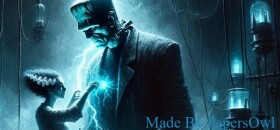How To Write an Essay About Frankenstein
Introduction to Mary Shelley's Frankenstein
Mary Shelley's "Frankenstein" is a seminal work of Gothic literature that explores themes of creation, responsibility, and the nature of humanity. In the introduction of your essay, set the stage by briefly summarizing the novel's plot, which centers around Victor Frankenstein, a young scientist who creates a sentient creature in an unorthodox scientific experiment. Highlight the novel's key themes, such as the dangers of unchecked scientific ambition, the quest for knowledge, and the moral implications of playing God. This introduction should provide a snapshot of the novel’s key elements and the thematic explorations you will delve into, laying the groundwork for a critical examination of Shelley's work.
Analyzing Themes and Characters
In the body of your essay, focus on a detailed exploration of the novel's central themes. Discuss the theme of creation and the consequences of Victor Frankenstein's pursuit of scientific discovery without ethical boundaries. Analyze the creature’s development and his quest for identity and companionship, which turns into a desire for revenge against his creator. Explore the novel's exploration of isolation, both self-imposed and societal, as experienced by Victor and his creature. Additionally, examine the characters' relationships and how they contribute to the novel's themes, using specific examples from the text to support your analysis. Each paragraph should focus on a different theme or character, weaving a comprehensive understanding of Shelley’s narrative.
The Novel's Context and Shelley's Writing
It's important to contextualize "Frankenstein" within its historical and literary background. Discuss the significance of the novel being written during the early 19th century, a time of significant scientific advancement and romantic literary movement. Explore how Shelley’s personal experiences and the scientific context of her time influenced the themes and style of "Frankenstein." Additionally, consider the novel's structure, narrative technique, and use of symbolism and imagery. This part of the essay should demonstrate an understanding of how "Frankenstein" not only reflects the time in which it was written but also contributes to the genre of science fiction.
Concluding Reflections
Conclude your essay by summarizing the key points of your analysis and reaffirming the novel's significance in literary history. Reflect on the enduring relevance of "Frankenstein" in modern times, particularly in discussions about scientific ethics, the boundaries of human endeavor, and the consequences of technological advancement. Consider the novel's impact on readers and its role in shaping subsequent literary and cultural narratives. A strong conclusion will not only encapsulate your insights but also underscore the novel's continued importance, encouraging readers to reflect on its themes in the context of today's world.



